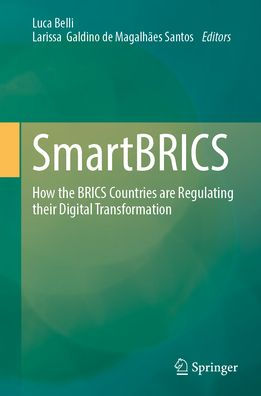This volume is the fruit of a collaboration between CTS-FGV, the Center for Technology and Society at Fundação Getulio Vargas Law School, Rio de Janeiro, and UNU-EGOV, the United Nations University Operating Unit on Policy-Driven Electronic Governance.
The book aims at providing an understanding of how the highly strategic BRICS (Brazil, Russia, India, China, and South Africa) countries are planning and implementing their digital transformation processes. This book focuses particularly on two essential, yet much-neglected, aspects of digital transformation, which should be seen as instrumental to trigger a sustainable digital transformation: the expansion of connectivity and the digitalization of public services.
Over the chapters of this work, we map policies, regulations, governance mechanisms and initiatives adopted by the BRICS to achieve the ambitious goal of becoming “smart” countries, in which the functioning of the economy, society, and democratic governance is supported and enhanced by technology, thus unleashing a remarkable evolution.
In providing this overview, this volume adopts a critical approach, acknowledging that digital transformation processes are not exempted from criticism, although they offer unique opportunities for developing countries to become global leaders. In this perspective, besides mapping the digital transformation processes of the BRICS countries, the book also provides useful insight on the approaches adopted by the BRICS countries, highlighting both some of their limits and some relevant success stories, that can be useful for researchers, policymakers, and practitioners alike.

